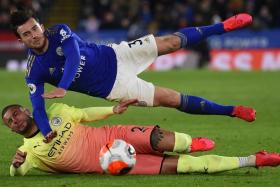Learning is a never-ending process for coaches
Sports trainers need to continue to learn but training methods need to evolve with time too, says Bales
The legendary basketball coach Phil Jackson once said: "Coaching is about, 'How do I get people to play at their peak level?'. It is a spiritual quest. If it's not that, you don't have a challenge, you don't have a mission."
And, in order to elevate their athletes to play their best in an ever-improving world of sports, coaches should keep on bettering themselves, said John Bales.
"If the coach isn't continuing to learn, then he is not going to be an effective coach," the International Council for Coaching Excellence president told The New Paper yesterday.
"Learning is such an important element in helping the athlete to progress and be really successful.
"You see it with all the top coaches; you will be really hard pressed to find one of these top coaches, who doesn't pay relentless attention to detail, who isn't always looking to what more they can do, and that is a learning process."
But the 66-year-old Canadian, who is delivering the keynote address to the inaugural CoachSG conference at the Joyden Hall in Bugis+ today, acknowledges that at times, coaches are not totally at fault for failing to upgrade themselves.
"When the coaching courses are not effective and do not meet the needs of the coach, we can't just criticise that coach," said Bales, Canada's former national canoe sprints coach.
"We've got to meet the coach halfway and make sure that the coaching courses are in fact meeting the needs."
For example, a country's sports coaching structure has to be flexible enough to place a coach with decades of experience into its system at a higher level, instead of placing him with beginner coaches, when it comes to enhancing their knowledge.
If the coach isn’t continuing to learn, then he is not going to be an effective coach.John Bales, president of the International Council for Coaching Excellence
Also, the education of coaches will need to evolve, given the heavier demands on sports trainers in an era of increased number of competitions, as well as the melding of science and medicine into sports.
As such, coaches should be mentored beyond formal training such as clinics.
Bales said: "The whole concept of the coach developer, the person who really works on the development of coaches, is a fairly new element in many countries.
"The role of that coach developer is to teach courses for sure, but also to serve as a mentor for a coach, to observe the coach in the field and give feedback to him on how he is doing.
"It's really to play a leadership role in the coaching system and to work on the design of the different coaching programmes."
Foreign coaches can play that role, when they are employed as national trainers, but can be effective only with clear communication of the expectations on them, and the correct support.
Bales said: "It has to start with the employer, either the national body or the club, making that (mentor role) a clear part of their goal in bringing in the foreign coach.
"The foreign coach needs support too, it isn't a case of piling more responsibilities on the coach.
"It's really essential that the coach has support, that he or she can provide that knowledge but not be burdened with all the organisational aspects to it.
"It's a team situation in an organisational demand that leads to success."
Get The New Paper on your phone with the free TNP app. Download from the Apple App Store or Google Play Store now



